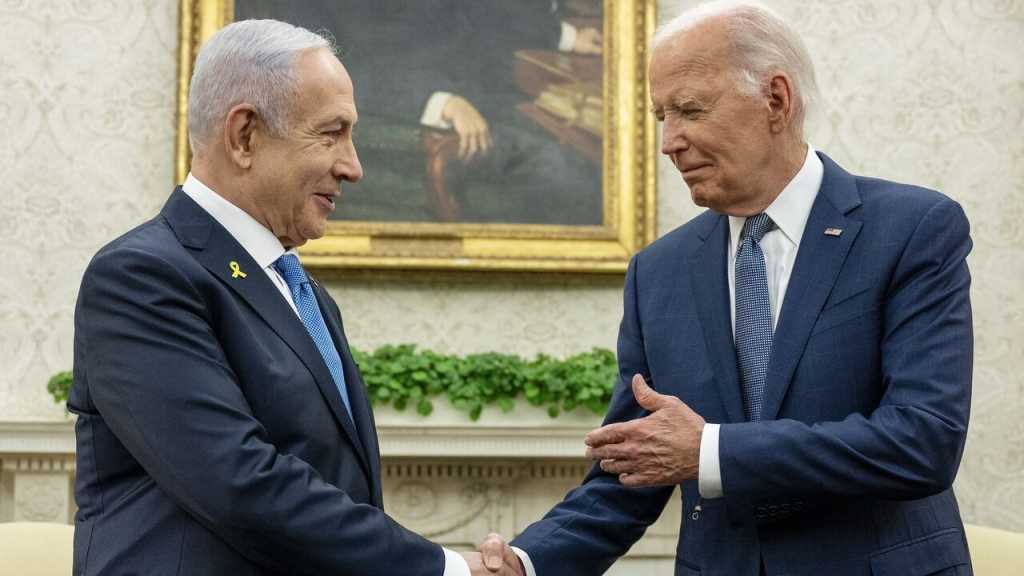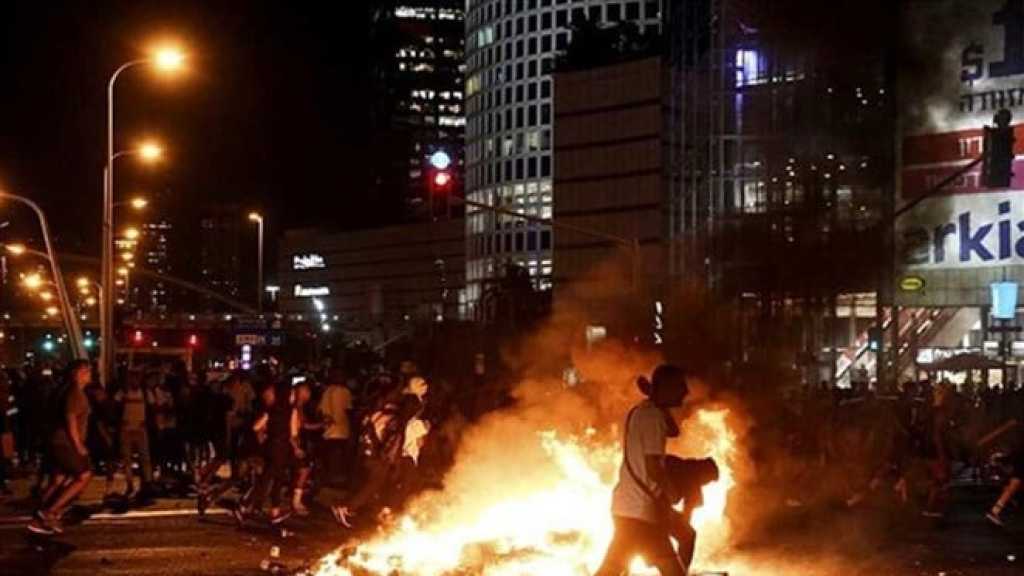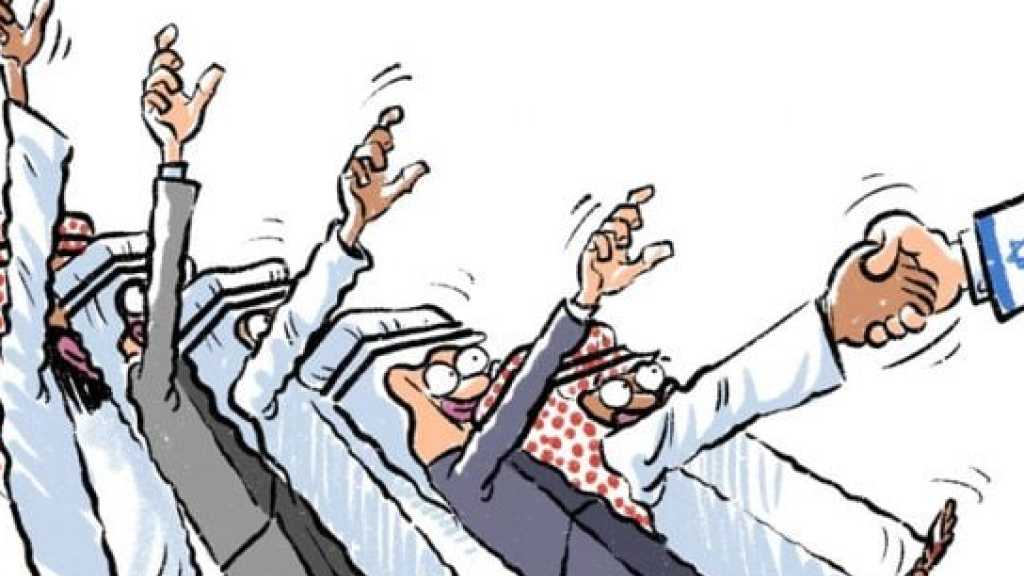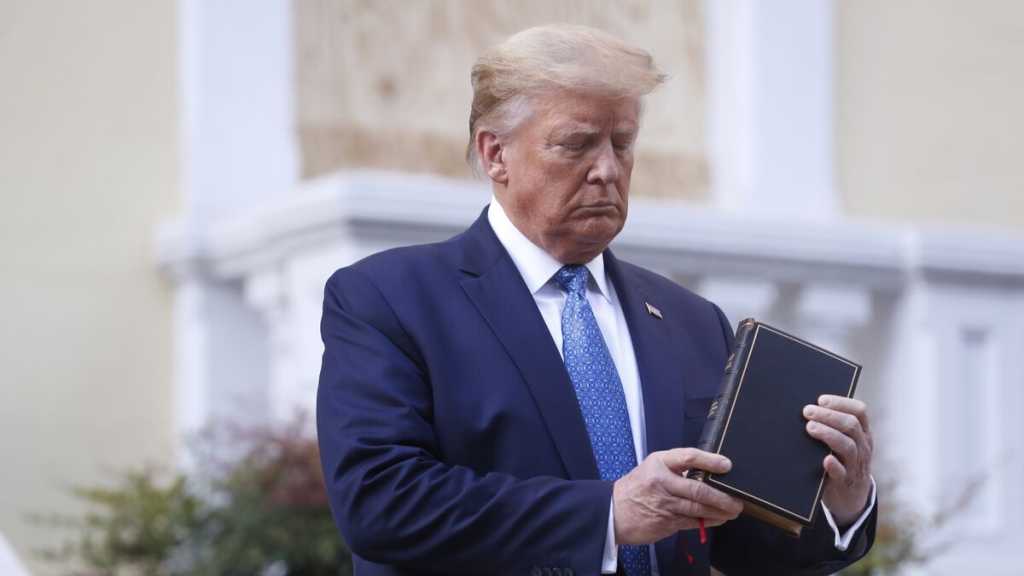Sheikh Qassem: We Are Not Those Who Suffer from Sacrifice
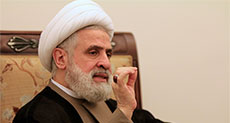
Photography: Essam Qubeissi
• Sayyed Zulfikar's martyrdom will make us more determined
• If we had found that "Israel" assassinated the leader, Zulfikar, we would say that regardless of the results
• Parliamentary elections are possible after the success of the municipal ones
• If the new bill is not passed before the deadline, return to the "Sixty" Law
• US-Saudi-Turkey meeting aborted truce in Aleppo
• Media is a lethal weapon if misused
In an exclusive interview with the al-Ahed News Website team, the Deputy Secretary-General of Hizbullah, His Eminence Sheikh Naim Qassem, spoke about the great jihadi leader Mustafa Badr al-Din, "Zulfikar", and the circumstances surrounding his martyrdom, addressing his achievements and his role in facing extremist groups, and stressing that "the path that we're on is the path to martyrdom and victory and there is no third option", and that "his martyrdom will strengthen our determination. We are not of those who suffer from sacrifices, but rather, of those who get pulled forward by sacrifices and our mission becomes ever greater."

During a meeting with the Al-Ahed team, Sheikh Qassem explained the results of the municipal elections and the ways to implement it successfully. He stressed that the results relating to the "Loyalty and Development" list has been important in all areas so far. He said that the "holding of parliamentary elections has become possible after the successful experience of the municipal elections."
In Syria, the Deputy Secretary General of Hizbullah said that we are facing nine months of persistent crisis, pointing out that the parties which are calling for a ceasefire [the US and its allies] are the ones violating it. He reiterated that the resistance will continue fighting no matter how long it takes, because with "a lack of commitment or a retreat from the field of battle, we have politically handed over the helm to the other side."
On the other hand, Sheikh Qassem acknowledged the role of the al-Ahed website, acknowledging it as being "supportive of the resistance".
*Martyr Sayyed "Zulfikar" was a senior commander, responsible for overseeing efforts in Syria, while delivering significant and prominent achievements
Sheikh Qassem asserted that "martyr Sayyed Mustafa Badr al-Din was a senior commander within Hizbullah. He was responsible for overseeing efforts in Syria for an important period of time, delivering significant and prominent achievements." He stressed that "the path that we're on is the path to martyrdom and victory, and there is no third option, and when some resistance fighters are martyred they rise in the field of honor and become part of the sacrifice that we need to attain victory, for there is no victory without sacrifices."
"His martyrdom will strengthen our determination. We are not of those who suffer from sacrifices, but (rather) are pulled forward by sacrifices and our mission becomes ever greater," Sheikh Qassem said.
He added, "Whoever looks back at the history of Hizbullah since 1982, will notice that each time a martyr or a senior leader falls, positive effects and extra momentum for martyrdom crystalizes in the following period. No lack of commitment, slacking, or retreat is seen." He added that "the project that is confronting us is one project, the US-Saudi-"Israeli"- Takfiri project, which serves the interest of "Israel"."
Based on the above, the Deputy Secretary General of Hizbullah stressed that "the martyrdom of Commander Badr Al-Din at the hands of takfirist, is martyrdom at the hands of "Israelis", which is martyrdom in confronting the hostile project. Here, details become irrelevant because the goal is what matters". To both friend and foe he said, "We will become stronger and firmer after leader Sayyed Mustafa Badr al-Din. We will benefit from this pure blood to strengthen the path more and more".
* If "Israel" was responsible for the assassination of martyr "Zulfikar", we would have announced it
Sheikh Qassem responded to those who doubted the credibility of Hezbollah's statement regarding the circumstances surrounding the martyrdom of commander "Zulfikar", confirming "we, in the history of Hizbullah, never disclosed news, information, or positions unless it was one hundred percent true, because we consider that honesty is our duty. We respect our martyrs, their families, and all those who have faith in us. We also want this truth to be available to all people because it will lead to greater responsibility and everyone should know them."
He added that "We revealed the group behind the attack based on the results of the investigation, and the presence of traces of the shells fired. Thus, our announcement came based on the outcome of the investigation. Claiming that the party does not want to declare that "Israel" assassinated the martyr leader so as not to get involved in responding is a false claim. We are better than hiding the truth from the people in that way, and if it was "Israel", we would have said it was "Israel" regardless of the consequences."
* If it weren't for the confrontation of extremist groups, holding the municipal elections would not have been possible
Regarding the elections, the Deputy Secretary General of Hizbullah confirmed that "we are comfortable with the course of the municipal elections because it created a certain political dynamic in the country after a long recession and the gradual deterioration of constitutional institutions. This political dynamic points to a desire among the Lebanese people to declare their loyalties and identify their choices and declare their representatives."
He pointed out that the Beqaa elections were significant because Beqaa was the most troubled in the previous stage due to the presence of Daesh [Arabic acronym for "ISIS" / "ISIL"] and Takfiris on the border. He added that "the success of the elections in the Beqaa and Beirut are significant. The once most tense of areas are the safest areas, allowing elections to be held in its first phase. Without confronting the Takfiris, it would have been impossible to hold the elections in the Beqaa or any other area. From this standpoint we see that the election was a good thing."
* Results regarding the "Loyalty and Development" list are important
Sheikh Qassem believes that the achievements of the "Loyalty and Development" list in all the districts and towns that held municipal elections were important from the political point of view, especially in some of the towns such as Baalbek and Brital, where the elections took on a political character. This is also true in other towns that are developmental in nature, where the people renewed their faith in the town's developmental reality.
With respect to reports about the election results in Baalbek not being overwhelmingly in favor of Hizbullah in terms of voter turnout, Sheikh Qassem responded that "in all election cycles held in the Beqaa - during the municipal elections in 1998, 2004, and 2010 - the percentage of the vote did not exceed 42 or 43 percent, and now the ratio is almost 45 percent. In Baalbek the ratio is always near this level, which is a normal percentage." He added that "If we wanted to talk about the success of the list, the weakest in the "Loyalty and Development" list received 900 votes more than the strongest of the losers on the opposite side. The result in Baalbek was good and important, and development in Baalbek is one of the best subsidies in Lebanon because of the municipality's work and its oversight."
* Holding parliamentary elections has become possible
"Holding parliamentary elections became possible after the successful experience of the municipal elections", Sheikh Qassem said, adding that "the conditions today are different from those years ago." Regarding the electoral law, he believes that "the best just law for the parliamentary elections is the relative law, but it does not seem that this law will pass because the different parties in their majority do not want the relative law, and most parties want a law that suits them so as to maintain their gains." He also pointed to the existence of "efforts to form a law that can be agreed upon, but I cannot say for sure that we'll get a positive result."
Municipal election results, according to Sheikh Qasim, might "push the Future party" in the direction of more inflexibility with respect to the electoral law. The party will strive to ensure wider representation through an electoral law that will give it this representation." He explained that if an agreement over "the electoral law was not reached, and in case the time required for the approval of the law expired, we will be faced with the Sixty-law," hoping that "we can make the appropriate adjustments, but this depends on other parties, which share our concerns."
As for the presidential elections, Qassem believes that "there is as yet no sign of resolving the situation, the steps taken do not point towards electing a president in the near future. If they wanted quick presidential elections, the way is known. Let them decide and choose a candidate who has popular representation, or else this standstill will persist."
* The region is facing a persistent nine-month crisis
The crisis in the region seen by the Deputy Secretary General of Hizbullah is "long". He asserted that "all the talk about a political solution in Syria is more of an introduction to a political solution rather than a serious step towards a political solution, because the international players need to say that they are on the road to a solution," pointing to the "American elections at the end of this year and the current paralysis of the US administration in its ability to follow complex issues. There is hope in Saudi Arabia that the current president might be replaced by one that might approve Saudi policy in rejecting the continuation of President al-Assad as part of the solution, or adopt policies that will lead to further gains in Saudi Arabia's favor in Syria, Yemen, Iraq, Libya and the various issues in the region."
He added that "This time is wasted time, and there are at least 9 months during which the region is in persistent crisis, without a serious achievement and without practical steps. Even a ceasefire or a cessation of hostilities, which they are talking about in Syria, we see that those calling for a ceasefire (the US and its allies) are the ones violating it as what happened in the southern countryside of Aleppo and Aleppo itself. When they find that the balance on the battlefield is not appropriate, and that this balance should be modified even at the expense of the cessation of hostilities, they wait for the situation to change. This means that we will face a continuation of the battles with various degrees of intensity depending on the conditions on the ground."
Sheikh Qassem explained the circumstances surrounding the ceasefire in Aleppo, saying that "the cessation of hostilities has been coordinated between the Russians, the Syrians, the Iranians, and Hizbullah. We discussed that if there was a significance in the cessation of hostilities or not, revealing that it is appropriate especially as it involves areas where Daesh and al-Nusra do not exist. It was said that as a first stage - if a cessation of hostilities occurred - the fighters will rest for a while, and there will be an interest in fulfilling the goals in fighting Daesh, and that is what happened. Tadmur (Palmyra) and al-Qaryatein were liberated, and that was a huge achievement."
He added that "It turned out that this achievement worried the Americans, the Saudis, and their allies. They considered that the resistance project team advanced a lot on the battlefield, and continuing in this way - even in confronting Daesh - would give it a chance to go to the negotiations while it has the upper hand on the ground. A meeting that included the US, Turkey and Saudi Arabia, as well as the groups affiliated to Nusra and Ahrar al-Sham took place. They discussed whether there was significance in the continuation of the cessation of the hostilities, and they took a decision revoking the cessation of hostilities at the beginning of the attack in the southern countryside of Aleppo. The Americans provided them with new weapons; the Saudis provided them with additional funding, and Turkey opened its borders to allow the entry of additional militants." He concluded by saying that "the Americans abandoned the political steps they were pushing towards and responded to the Saudi and Turkish demand in the need to change the reality on the ground."
* We will continue fighting no matter how long it takes and there are real gains on the ground
Sheikh Qassem confirms that Hizbullah believes "the solution in Syria is a political solution, but if they continued to fight on the battlefield, we will continue, without specifying the time. A lack of commitment or retreat from the field of battle, politically hands over the helm to the other side. From here we will continue no matter how long it takes, and there are real gains on the ground." And he asserted that "Syria's steadfastness for five years is the biggest proof that the fighting in Syria is productive and influential, and has prevented the fall of the Syrian resistance and rescinded their plans."
* The Saudis want the Yemenis to surrender their weapons before the start of a political solution
Regarding Yemen, Sheikh Qassem believes that "the Yemeni and Saudi Arabian meetings in Kuwait are at a standstill, and the starting points of both parties are completely upside down. The Yemeni party wants a ceasefire and the kicking off of peace talks to reach a solution. The Saudi side wants the Yemenis to hand over their weapons and vacate their positions before the political solution begins, which means the Saudis want to politically invest in the battle, hoping for the highest possible result and without any step where there is a solution and exchange of gains. It is complicated."
* Americans are not serious about fighting Daesh
In Iraq, Sheikh Qassem points out that "the Americans are not serious about fighting "Daesh". Through American statements and interviews, you heard that "Daesh" was founded in the region to perform a job, its essential role is to support "Israel" against the resistance project," asserting that "all the talk about fighting Takfiri terrorism is political and has no practical translation on the battlefield."
* Media is a deadly weapon... and al-Ahed News is a website that supports the resistance project
Sheikh Qassem asserts that "the media today is a deadly weapon if it was bad, because it distorts the facts and transmits images with limited and unrealistic angles, which is at the same time a way of informing, educating, and guidance, if the supervisors are keen on presenting the facts and images as they are without abuse, mutilation, or distorting the facts." He refers to the importance of "checking the authenticity of the news, especially when it comes from the source, which is generally seen as inaccurate in news reporting."
From here, the Deputy Secretary General of Hizbullah acknowledged the role of the al-Ahed news website. He considers it to be a site "supportive of the resistance which tries to show the full picture, and delivers to the public news and information that provide enough material for people to analyze and understand what is going on," stressing the need for us to "always look for ways to take advantage of the views through Al-Ahed in the most difficult situations that we face."
Sheikh Qassem urged the people working in al-Ahed to "be diligent on the correct story, even if the false news had promotional benefit or other benefits in terms of attracting large numbers of readers to the site," explaining that "the damages of such news will be much greater than the benefits." He added that "When the site possesses credibility, it becomes trustworthy. For example, when His Eminence the Secretary General of Hizbullah Sayyed Hassan Nasrallah addresses the public, he is keen to speak the truth and does not add (anything) to distort it, and does not give false information, what was born by conviction among the "Israelis" is that he is "honest", everything he says at any time is the basis, and even if it was in contrary to their leaders, because they believe him and disbelieve their leaders. Truthfulness is a real value."
Sheikh Qassem emphasized that "we as a party - throughout our journey- were keen to address the audience with facts, and that enhances people's trust and confidence, and the trust of our allies. We consider that honesty and loyalty are the foundation of any promise or commitment we give."
He believes that "the sites and means of communication available to us are fewer than those available to the others. On the opposite side, there are countries that are working against us with huge potential and on a global level."
Source: al-Ahed News, Translated and Edited by website team

